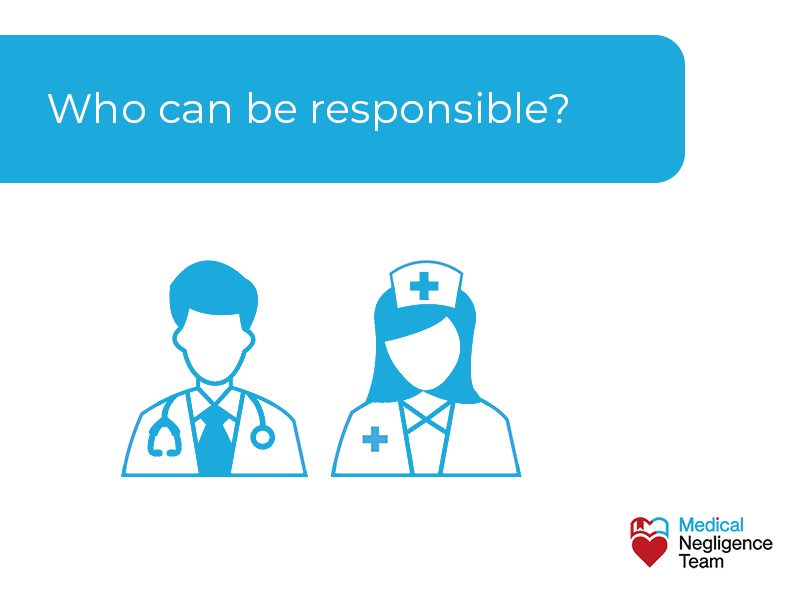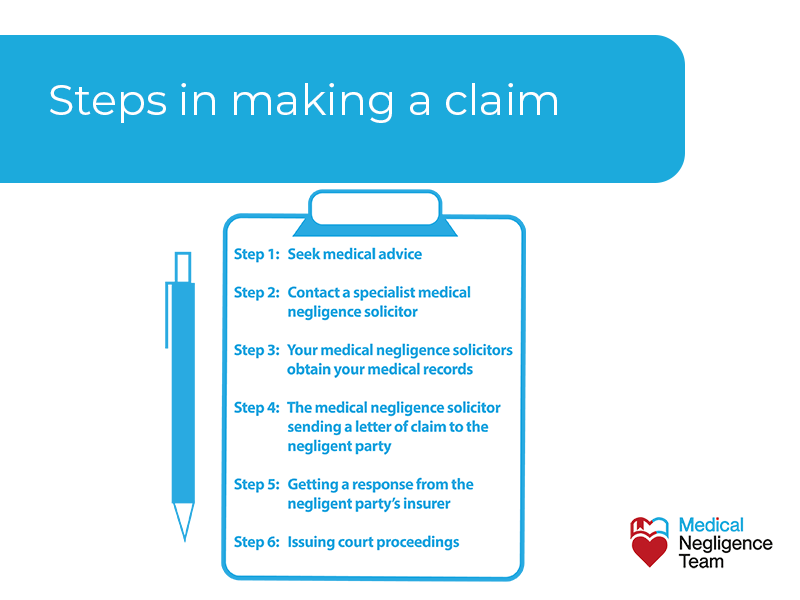Pressure sore negligence comes from low standards of care in a hospital, nursing home or rehab facility. Pressure sores, also known as bed sores, can be very painful and difficult to heal.
We trust the care of our loved ones to the staff of the hospital, nursing home or long-term care facility. The facilities should provide professional service and not allow bed sores to form.
Pressure sores form due to medical negligence. Not only are they painful, but they can become infected and cause distress to the patient and family. You and your family will have a pressure sore negligence claim against those responsible.
A No Win No Fee medical negligence solicitor will take your claim for pressure sore negligence and win the compensation you deserve.

Table of content
What is a pressure sore?
A pressure sore is a painful skin ulcer that develops on parts of the body. The pressure, or bed sore, forms from prolonged contact with the bed or surface of a wheelchair.
Pressure sores most often appear on parts such as the shoulders, hips, back of the knees, ankles, heels and along the spine. The back of the head and the coccyx or tailbone are other places you can find bed sores.
Not only are these the areas where your body hits the surface of the bed or chair, but they also lack the fat or muscle to cushion the pressure.
Bed sores form when the blood flow to the area is restricted by the constant pressure of the body against the surface of the chair, wheelchair or bed.
If the patient is not moved regularly, injury to the skin and the soft tissue beneath the skin causes pressure sores to develop.
There are many causes of pressure sores, and if you suffer from them, you may have a compensation claim for medical negligence.
What causes a pressure sore?
A pressure sore is caused when a patient is left lying or sitting in the one position for too long a period. The prolonged immobility puts pressure on the area where the body hits the surface, and the sore develops.
Bed sores can also develop in less time if there is a higher rate of pressure applied due to the patient’s weight or if they are not sitting or lying correctly.
When the blood flow stops, so does the flow of oxygen and nutrients that keep the skin healthy. The patch of skin becomes unhealthy and infected, and the ulcer forms over the area as it breaks down.
Pressure or bed sores often develop when a patient is left immobile on:
Bed sores can develop when an immobile person is left without being moved. Every patient with mobility problems needs to be moved regularly to avoid pressure sores developing.
Pressure sores, bed sores or pressure ulcers are a painful but preventable condition with obvious symptoms.

What are the symptoms of pressure sores?
The symptoms of pressure sores go from redness of the skin to infection. Knowing the symptoms of bed sores is essential for a correct diagnosis and prompt treatment.
Symptoms of pressure sore or bed sores are:

The symptoms of bed sores are obvious to those looking for them. When there is medical negligence in treating a loved one with mobility problems, you will often find pressure sore negligence too.
Pressure sores can happen at home, the hospital, the nursing home or care facility. They are avoidable when proper medical attention is shown to those unable to get out of bed, a wheelchair or a day chair.
When bed sores develop, you may have a pressure sore negligence claim for compensation.
Common pressure sore negligence claims
Common pressure sore negligence claims range from neglect of a patient to the incorrect treatment of the bed sores when they develop.
You or your loved one will have a pressure sore negligence claim against the hospital or nursing home for the suffering caused.
Common pressure sore negligence claims are for:

Not assessing a patient’s needs claim
Not assessing a patient’s needs can happen when they are admitted to a nursing home or when being treated at hospital.
Only by carrying out a full assessment of the patient can the medical staff know what is needed. Will the patient be able to get out of bed unaided? Can the patient move in their bed or chair? Does the patient need assistance with moving?
Every patient needs their mobility assessed, especially those with injuries and in nursing homes.
Failing to change a patient’s position in bed claim
Failing to change a patient’s position in bed results from neglect in the hospital ward or nursing home. An immobile patient cannot move and needs round-the-clock care.
Pressure sores develop due to the pressure on the skin where the body lies on the bed. The staff should know who needs to be moved and turned regularly.
Older people and those with broken legs and hips and spinal injuries cannot move easily, and bed sores can start if they are left in the same position for too long.
Supplying the wrong type of bed claim
Supplying the wrong type of bed can cause bed sores as the patient may not be supported properly, or the bed cannot be elevated to reduce pressure.
The nursing home, care centre and hospital must have beds where the mattress can be elevated or inflated to ease the danger of bed sores.
To leave a patient lying in the wrong type of bed is obvious pressure sore negligence.
Leaving the patient in a wheelchair for too long claim
Leaving a patient in a wheelchair for too long will cause them to develop pressure sores on the lower back and other parts of the body.
The patient should be moved regularly, and where they sit should be cushioned to lessen the pressure on the back area.
Patients in nursing homes should be moved out of day chairs when they cannot move themselves, to prevent a pressure sore from developing during their time out of bed.
Not treating a bed sore when it develops claim
Not treating a bed sore when it develops is medical negligence and will only make a bad situation worse.
An untreated bed sore will quickly become infected, making the ulcer very difficult to treat. Pus can weep from the wound, and the area will become very painful.
A bed or pressure sore should be treated when the symptoms first develop, and the patient should be moved immediately.
Medical staff doing a professional job will know how to care properly for a patient and prevent bed sores.
When they do not, you may have a pressure sore negligence claim for compensation.
What are the effects of pressure sores?
The effects of pressure sores are discomfort, a lot of pain and severe infection. When the bed or pressure sore develops, it needs to be treated immediately, or the effects can be a lot worse.
Some of the effects of pressure sores are:
Unfortunately, in many patients, the severe effects of pressure sores may be long-term. They may require intravenous antibiotics for months, surgery to remove the infection and, in extreme cases, amputation.
Recovery may involve physiotherapy, and the feeling of neglect can cause a lot of damage to mental health.
When you or a loved one suffers the effects of bed sores, you will want to bring a medical negligence claim against those at fault.
Who is at fault for pressure sores?
A medical professional is at fault for pressure sores that develop under their care. It may be the nurse at the hospital, the staff at the nursing home or the doctor at a rehabilitation centre who does not assess your care needs correctly.
When you are immobile or have difficulties moving and are in the care of others, you are very vulnerable. You will need constant care and regular moving in the bed, chair or wheelchair where you spend most of your time.
Pressure sores or bed sores develop due to the neglect of others who care for you. The nursing home or long-term care facility should provide that care and not allow pressure sores to form.
If you suffer pressure sores when in the care of a nursing home or hospital, you can file a compensation claim for pressure sore negligence.

How much can I claim for pressure sore negligence?
You can claim for pressure sore negligence in amounts over £3,000 to ones of more than £50,000. The amounts claimed can differ from patient to patient and will depend on the level of neglect and the effects of the pressure sores.
Effects such as psychiatric damage can attract compensation awards around the £19,000 level, while blood poisoning requiring a stay in hospital may be awarded more than £40,000.
There is not one fixed amount awarded in pressure sore negligence cases. The amount of compensation differs from patient to patient, depending on the circumstances of the pressure sore and its effects.
As in all medical negligence claims, each case is dealt with on its merits and how much you have suffered due to the pressure sore.
A No Win No Fee medical negligence solicitor will be the only one who can advise you on a pressure sore negligence claim. They will know from experience what your case may be worth and how to go about a successful claim.
Your No Win No Fee medical negligence solicitor will handle your pressure sore negligence claim and get you compensation for all damages incurred.
What can you claim for when suing for pressure sore negligence?
You can claim compensation for any damages that occurred when suing for pressure sore negligence.
There are two types of compensation damages due when suing for any type of medical negligence: General damages and Special damages.

General damages
General damages are when you sue for the pain, suffering and the loss of amenity, PSLA, you have experienced due to negligence.
Special damages
Special damages include loss of earnings, future care costs, and out-of-pocket expenses.
Be sure to keep payslips, receipts and proof of any losses you experience as a result of the medical negligence.
You deserve compensation to cover all losses, including loss of life, medical costs and any long-term care needs.
When you or a loved one suffers from the effects of pressure sore negligence, you make a claim for compensation.
Your No Win No Fee solicitor will guide you through the steps in making a pressure sore negligence claim.
What are the steps involved in making a pressure sore negligence claim?
The steps involved in making a pressure sore negligence claim go from seeking medical advice to issuing court proceedings. The steps are a part of any successful compensation case, and settlement can happen at any stage in the process.
Your medical negligence solicitor will do the rest when you follow the steps correctly and get all the facts and figures together.

Step 1: Seek medical advice
Seek medical advice on the injuries you have suffered or are suffering with immediately you realise you experienced pressure sore negligence.
Step 2: Contact a specialist medical negligence solicitor
Contact a specialist medical negligence solicitor who operates on a No Win No Fee basis and tell them what went wrong. The right solicitor will look at your case, see where the problem lies, and advise if you suffered pressure sore negligence.
The Medical Negligence Team also have a 100% Compensation Guarantee scheme, where you get all the money awarded in a negligence claim.
You are the one who suffered medical negligence, and you should get all the money due for the suffering.
Step 3: Your medical negligence solicitor obtains your medical records
Your medical negligence solicitor obtains your medical records with your permission. By reading your records, they will confirm if they think you have a valid pressure sore negligence case.
The medical negligence team will know from reading your medical records if the case will result in compensation being paid.
Step 4: The medical negligence solicitor sending a letter of claim to the negligent party
The medical negligence solicitor sending a letter of claim to the negligent party is the next step. The letter will ask them to admit the pressure sore negligence in what is known as ‘sending a letter of claim.’
When the negligent party receives the letter of claim, it has up to four months to provide a written response.
Step 5: Getting a response from the negligent party’s insurer
Getting a response from the negligent party’s insurer will move your compensation claim closer to a conclusion.
The insurer will either admit the medical negligence or say they intend to defend the case. Deciding to defend the case is known as ‘deny liability’ in legal terms.
If they admit liability, your pressure sore negligence claim can be valued.
The two parties will meet to decide on your pressure sore compensation payment.
Your solicitor will negotiate with the negligent party and use their experience to get the compensation you deserve.
Step 6: Issuing court proceedings
Issuing court proceedings is the next step if they deny liability in your pressure sore negligence case.
Going to court happens, too, when they are not prepared to pay a fair amount for the injuries you have suffered. Your medical negligence solicitor issues the court proceedings.
Remember that less than 1% of medical negligence cases end up in court, and very few of those cases ever make it to the courtroom.
Using a No Win No Fee solicitor
Using a No Win No Fee solicitor is the only way to a successful pressure sore negligence claim. Your No Win No Fee medical negligence solicitor will not charge you for a claim you do not win.
Always have a fee agreement in place before engaging a medical negligence solicitor. If they start talking of a ‘win fee’ or a ‘success fee,’ you should walk away. The negligent party insurers should pay all fees.
The medical negligence solicitor should also operate a 100% Compensation Guarantee scheme. When you win the case, all the money awarded should go to you, not the solicitor.
You are the one who suffered pressure sore negligence, and you deserve the compensation to get your life back to normal.
How long do I have to make a claim for pressure sore negligence?
You have three years to make a claim for pressure sore negligence. All medical negligence claims are subject to limitation periods.
For example, in England and Wales, medical negligence claims must generally be brought, court proceedings issued within three years of the injury, or three years of knowledge of the facts giving rise to the claim.
If someone has passed away, it is the date of death if the limitation period has not expired at the date of death.
Children not under a disability typically have until they reach 21 to start a pressure sore negligence claim or court proceedings.
Persons under a disability, who lack capacity, are not subject to any limitation period.
Can I make a medical negligence claim against the NHS?
Yes, you can make a medical negligence claim against the NHS. Suing the NHS for negligence is not unusual. People sue the NHS for compensation for medical negligence and receive the money they deserve for the negligent treatment.
Each year there are between 8,000 and 10,000 successful medical negligence claims against the NHS. Suing the NHS for medical negligence can make some people feel uncomfortable.
Amounts in compensation claims awarded against the NHS range from £1000 to over £10 million. The amount you receive covers minor injuries such as scarring to serious life-threatening negligence, which leaves you with long-term care needs.
We trust in and use the NHS daily and do not expect negligence. It happens, though, and the NHS has a dedicated team to handle medical negligence compensation claims, called NHS resolution.
NHS Resolution has a responsibility to treat patients who seek compensation fairly. Patients pay for the NHS through their taxes, and for that they deserve respect and the best medical treatment.
Make a Medical Negligence Claim today
Contact the Medical Negligence Team today to discuss your pressure sore negligence claim for compensation. We have both the legal and medical experts to guide you along the steps to a successful medical negligence claim for compensation.
At the Medical Negligence Team, we fight every compensation claim on a No Win No Fee basis. You will not be out of pocket for an unsuccessful claim.
We have a very high success rate and a reputation for a speedy and successful resolution to all medical negligence cases.
Our 100% Compensation Guarantee puts all the money you win into your pocket. You or your loved one suffered pressure sore negligence, and you deserve every penny of the compensation.
Contact us at the Medical Negligence Team for all your medical negligence needs.


